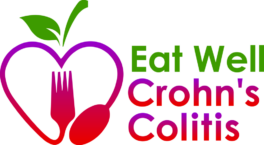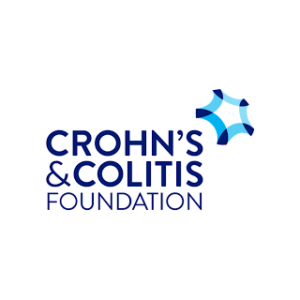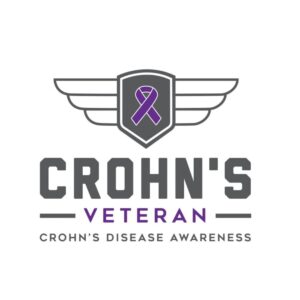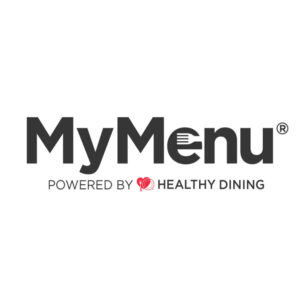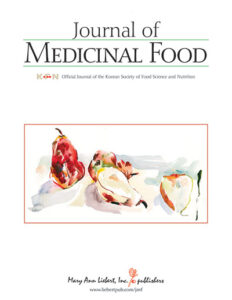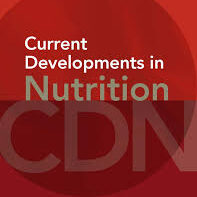Are Probiotics Good for Ulcerative Colitis?
Alison Rosenstock, MS, RD
- Last Updated
Are probiotics for ulcerative colitis (UC) good for improving gut health? Here are some key things to consider, what the research shows, and recommended probiotic strains.
In inflammatory bowel diseases like UC, the gut microbiome becomes out of balance which allows bad bacteria to grow and cause disease. Research suggests that altering the microflora in favor of “good bacteria” can repair the gastrointestinal tract and protect against disease-causing pathogens.
But does probiotic supplementation provide this much-needed shift during states of active disease? Today’s blog will explore the effects of probiotics in treatment for UC, which probiotic strains are associated with the best outcomes, and where the research stands in terms of recommendations.
What are Probiotics?
Probiotics are defined as “live microorganisms that, when administered in adequate amounts, confer a health benefit upon the host.”
When these organisms are plentiful in the gut, they allow the microflora to exist in a symbiotic (mutually beneficial) relationship with the human body. They help metabolize nutrients, enhance immune response, and protect against infection.
Probiotics are stronger competitors than the “bad” bacteria and keep the harmful strains from becoming dominant in the gut. When the bad strains are lower in numbers, they are less likely to cause infection.
Types of Probiotics
There are many thousands of different probiotic species and strains. Well-known species include:
- Lactobacillus
- Bifidobacterium
- Saccharomyces
- Streptococcus
- Escherichia
- Bacillus
Probiotics’ health-promoting effects in the human body depend on the species, strain, and quantity of the organism. Some benefits include protection against upper respiratory infections and promoting regularity of bowel movements.
Sources of Probiotics
Probiotics are available as dietary supplements like capsules, gummies, and powders. Probiotic species are measured in colony forming units (CFUs), which correspond to the number of living cells present. Most probiotic supplements have a dosage of 1 to 10 billion CFUs. Some products contain as high as 50 billion CFUs per dose.
Probiotic organisms also occur naturally in many fermented foods, including:
- Kombucha
- Yogurt
- Kefir
- Sauerkraut
- Kimchi
- Miso
They can be added to food products, such as dairy milk containing Lactobacillus acidophilus.
Probiotics and Prebiotics
Prebiotics are complex carbohydrate nutrients which provide fuel for probiotic bacteria. Prebiotics are found in many nutrient-dense carbohydrate foods like whole grains, legumes, fruits, and vegetables.
There are some commercially available supplements which contain both probiotics and prebiotics.
Probiotics and Ulcerative Colitis
Ulcerative colitis is a medical condition characterized by continuous inflammation of the large intestine. It often alternates between periods of remission (no symptoms of disease) and relapse, which results in symptoms like bloody diarrhea, cramping, bloating, and abdominal pain.
There are research studies which found that treatment with probiotics increased remission rates in adults with UC.
What the Research Shows
A 2014 meta-analysis in Inflammatory Bowel Diseases found that adults with active UC had increased rates of remission after supplementation with probiotics.
The official recommendation is to begin the course of probiotics at the onset of a UC flare and continue for 1-2 weeks past the resolution of symptoms.
A 2016 study found that UC patients who received daily probiotics alongside anti-inflammatory drugs over two years had greater improvements in disease management than the subjects who received the medication only. These findings indicate that probiotics may also be helpful in long-term improvement of ulcerative colitis.
However, further research is needed to determine probiotics’ role in the management of UC, particularly as it pertains to maintaining disease remission.
What Are The Best Probiotics for Ulcerative Colitis?
A few different probiotic strains have been studied for ulcerative colitis, including Lactobacillus, Bifidobacterium, and Saccharomyces.
VSL #3* is a combined probiotic which contains three strains of Bifidobacterium, four strains of Lactobacillus, and one strain of Streptococcus. It has shown promise in preventing and treating digestive diseases and has been endorsed as a kind of medical food.
*A note that the formula for VSL#3 was modified after 2016 and the product known as VSL#3 prior to this time is now called Visbiome.
Research About These Best Probiotic Strains
The adult UC subjects in the two-year study received a blend of Lactobacillus salivarus, Lactobacillus acidophilus, and Bifidobacterium bifidus strain BG4 alongside their anti-inflammatory medication.
Additionally, an Italian study found that UC patients who received supplements of the Lactobacillus rhamnosus GG strain had longer lengths of time between disease flare-ups.
A high dose, multi-strain probiotic approach may yield the most effective treatment results for ulcerative colitis. VSL#3 and similar high-dose multispecies probiotics, particularly ones with multiple species of Bifidobacterium, are preferred in treatment.
Benefits of Probiotics
Probiotics promote the health of the GI tract and the overall health of the human body. They keep the gut microbiome in balance by limiting the growth of harmful bacteria.
Consumption of prebiotic foods such as garlic, onions, bananas, and leeks is also encouraged to ensure probiotic species have the nourishment they need to grow and thrive.
Probiotics can typically be used in conjunction with other medications and supplements. One example is taking Metamucil and probiotics together, though this may cause side effects like gas and bloating in some people.
Are There Risks From Taking Probiotics?
The risk of side effects from probiotic use is relatively low, particularly in healthy individuals. Subjects with UC who received probiotic supplements in clinical trials did not report any serious events during the study.
However, probiotics should be used with caution in people who are immunocompromised because they contain live microorganisms.
Additionally, certain probiotic-containing foods like yogurt and kefir are not recommended for individuals with lactose intolerance or a dairy allergy.
Probiotic supplements are not regulated by the U.S. Food and Drug Administration (FDA). Unfortunately, some supplements available at grocery stores or pharmacies may not have probiotic species that are still alive when you take them.
Your healthcare provider will be the best resource for high-quality probiotics with dosage appropriate for your specific situation. Always ensure any supplements and medications you are taking are approved by your physician and dietitian.
Take Home Messages- Probiotics for Ulcerative Colitis
- The gut microbiome is disturbed in inflammatory bowel conditions like UC, which creates conditions for infectious bacteria to colonize and cause disease.
- Probiotics are live microorganisms that offer health benefits. When abundant, they halt the growth of bad bacteria and strengthen the health and immune response of the GI tract.
- There is some research support for probiotics increasing remission in UC, but further study is needed. Bifidobacterium, Lactobacillus, and Streptococcus thermophilus strains have shown promise, while high-dose multi-strain blends like VSL#3/Visbiome appear to have the most benefits.
- Probiotics are largely safe to use and risk for side effects is typically low. However, it is important to work with your physician and Registered Dietitian to determine the probiotic treatment most appropriate for you and always take any medications and supplements as directed.
All included information is not intended to treat or diagnose any disease or medical condition. Always consult your healthcare provider for medical questions and before beginning or changing any dietary or supplementation regimen.
